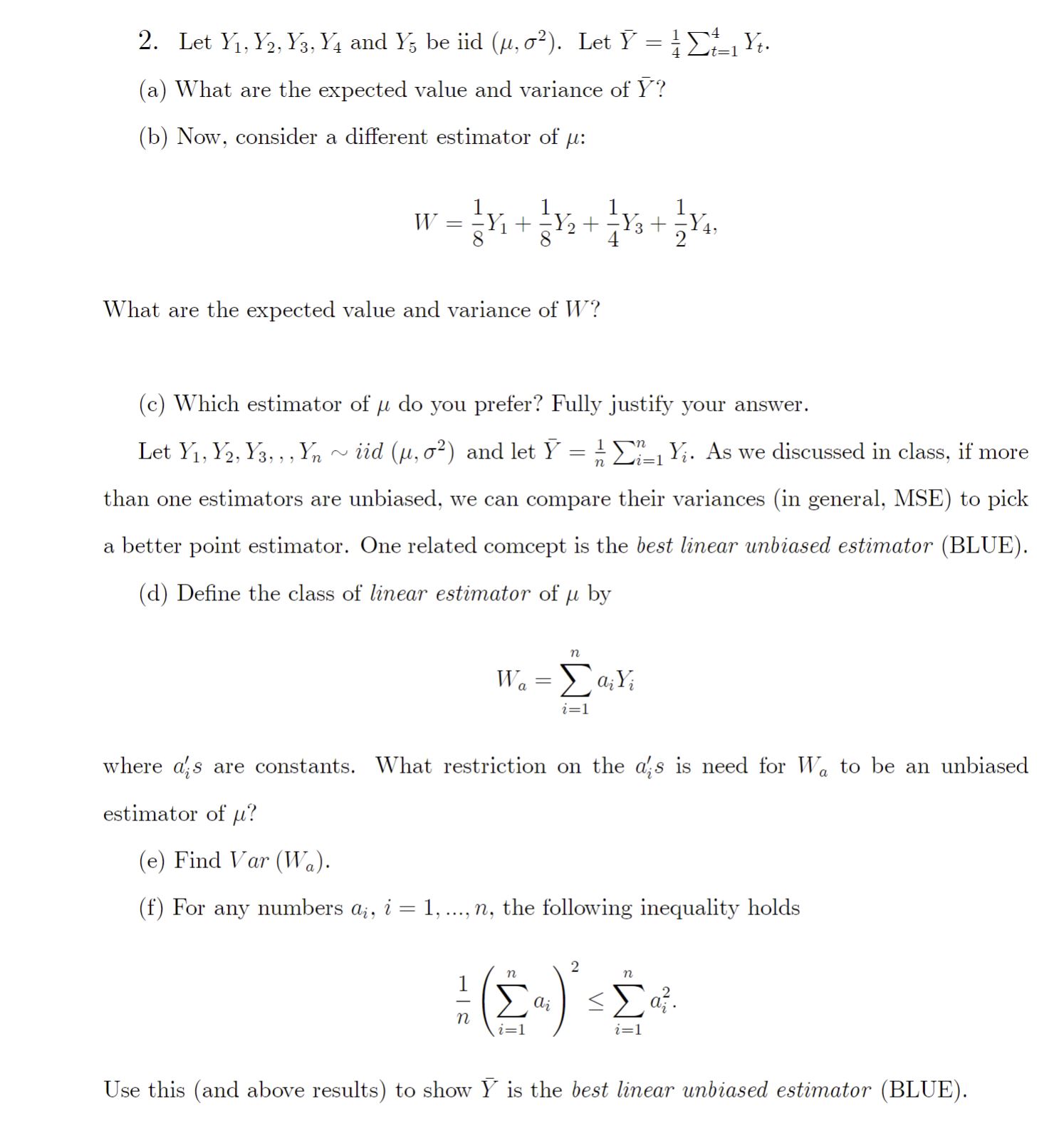Answered step by step
Verified Expert Solution
Question
1 Approved Answer
=1 2. Let Y, Y, Y, Y and Y be iid (, ). Let = Yt. (a) What are the expected value and variance

=1 2. Let Y, Y, Y, Y and Y be iid (, ). Let = Yt. (a) What are the expected value and variance of Y? (b) Now, consider a different estimator of : W = x+++ What are the expected value and variance of W? Y3 + (c) Which estimator of do you prefer? Fully justify your answer. Let Y, Y2, Y3,,, Yn ~iid (, ) and let Y = . As we discussed in class, if more n =1 than one estimators are unbiased, we can compare their variances (in general, MSE) to pick a better point estimator. One related comcept is the best linear unbiased estimator (BLUE). (d) Define the class of linear estimator of by n W = ai Yi i=1 where as are constants. What restriction on the as is need for Wa to be an unbiased estimator of ? (e) Find Var (Wa). (f) For any numbers ar, i = 1, ..., n, the following inequality holds n n 2 n a. ai i=1 Use this (and above results) to show is the best linear unbiased estimator (BLUE).
Step by Step Solution
There are 3 Steps involved in it
Step: 1

Get Instant Access to Expert-Tailored Solutions
See step-by-step solutions with expert insights and AI powered tools for academic success
Step: 2

Step: 3

Ace Your Homework with AI
Get the answers you need in no time with our AI-driven, step-by-step assistance
Get Started


